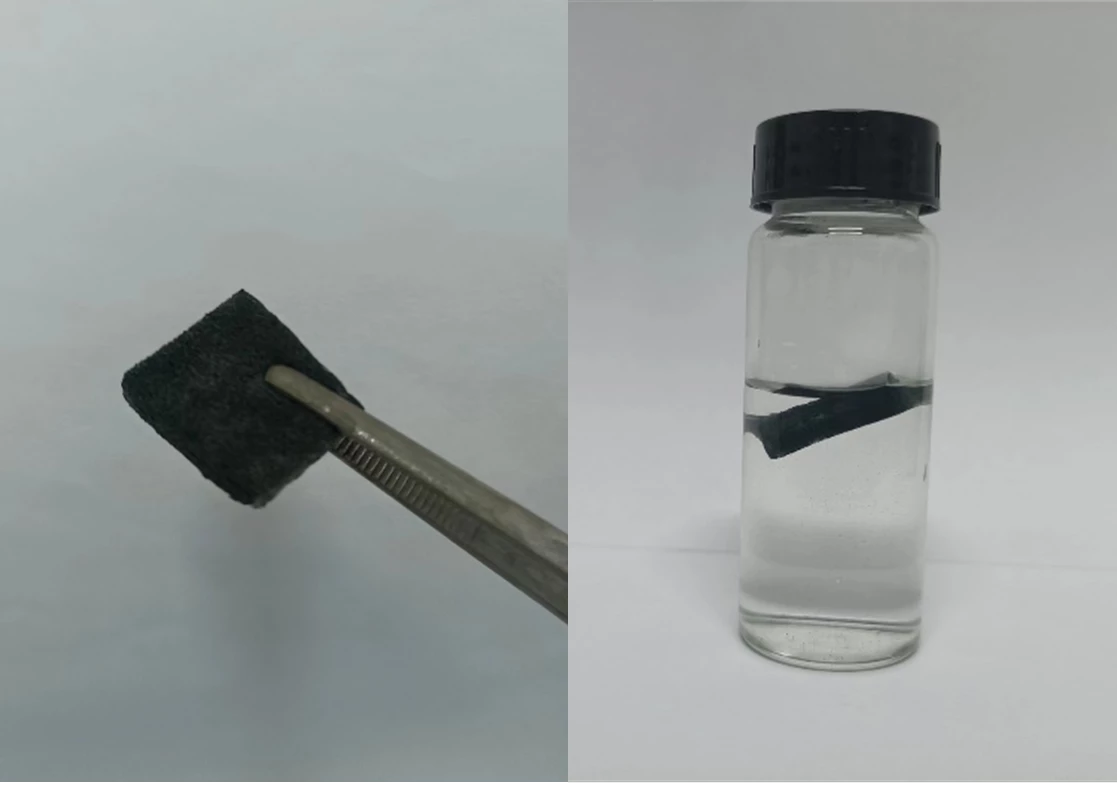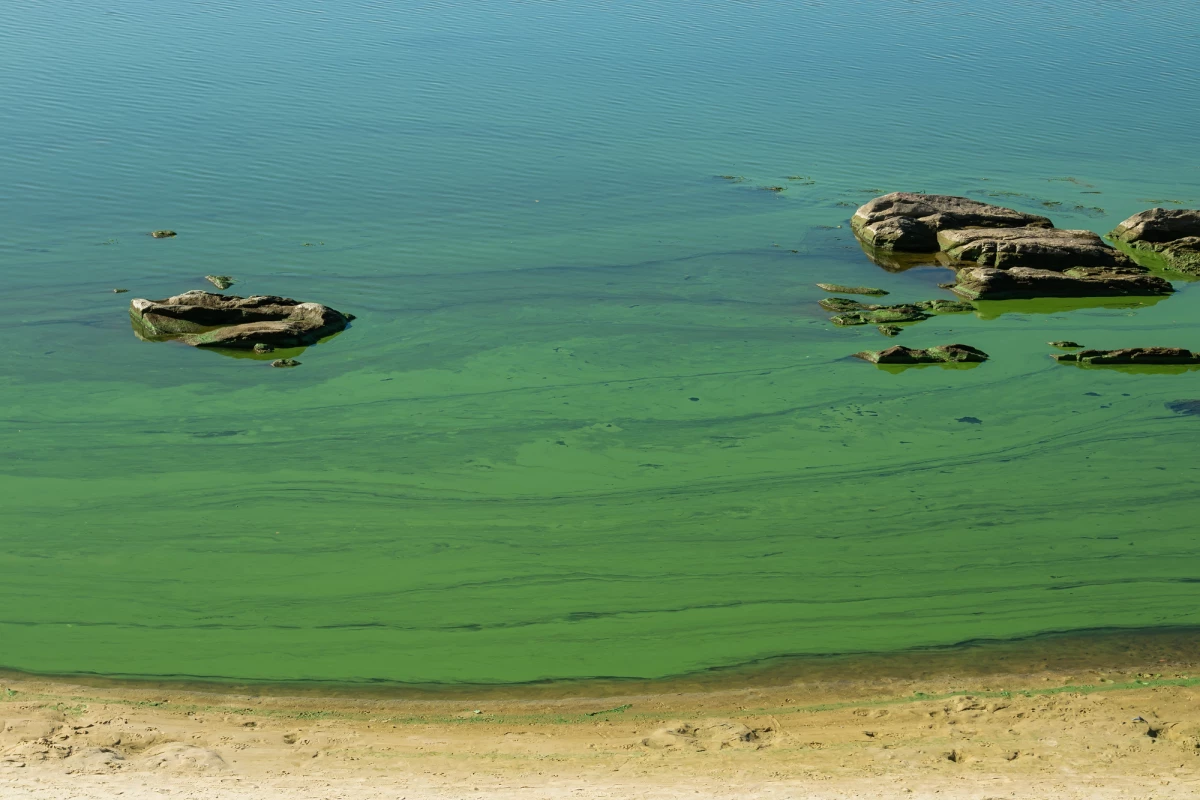Commonly known as blue-green algae, toxic cyanobacteria can harm humans and wildlife alike when their populations soar in lakes or rivers. A newly developed sponge, however, could soon help bring such harmful algal blooms under control.
Led by Jiangfang Yu and Lin Tang, scientists at China's Hunan University had previously determined that oxidants based on a compound known as persulfate were lethal to Microcystis aeruginosa cyanobacteria.
That said, the oxidants had to be triggered by a catalyst such as biochar. Similar to charcoal, biochar is produced via a process called pyrolysis, in which heat is used to decompose organic material in the absence of oxygen.
Yu, Tang and colleagues recently proceeded to create powdered biochar from shrimp shells (which would otherwise go to waste), a layer of which they added to a porous three-dimensional melamine sponge. A thin layer of polyvinyl alcohol (a synthetic polymer) was placed between the two materials, linking them together when heated to 572 ºF (300 ºC).
Next, a persulfate-based oxidizing agent was added to the composite sponge, which was then left to float in a lab dish full of M. aeruginosa-tainted water.

Within five hours the sponge killed 90% of the bacteria, causing their cell membranes to split and release their contents. Those contents quickly broke down into smaller nontoxic components. When tested on samples collected from actual lakes, the sponge still eradicated over 85% of the harmful cyanobacteria.
The research is described in a paper that was recently published in the journal ACS ES&T Water.
Source: American Chemical Society




